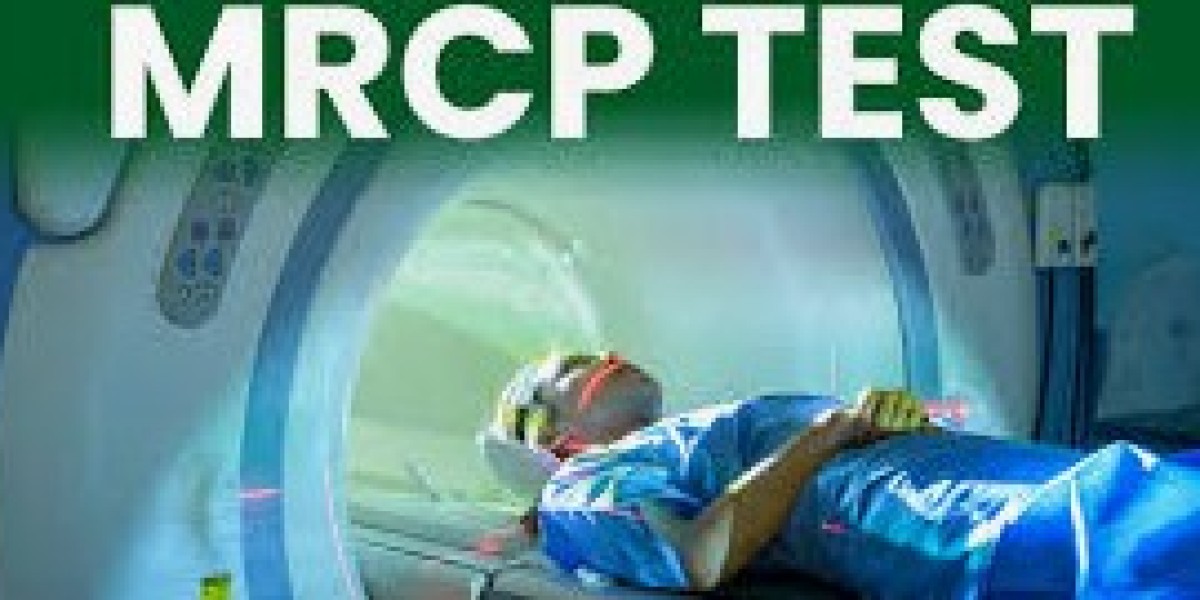The MRCP Test (Magnetic Resonance Cholangiopancreatography) is a non-invasive imaging technique used to get detailed pictures of the bile ducts, gallbladder, pancreas, and pancreatic duct. It is a special type of MRI scan that helps doctors detect and evaluate conditions affecting these organs. MRCP has become a preferred alternative to some invasive procedures because it does not require surgical instruments or exposure to ionizing radiation.
What is the MRCP Test?
The MRCP test is a specialized form of MRI scanning. It uses a powerful magnetic field, radio waves, and a computer to create detailed, high-resolution images. This test is particularly useful for identifying blockages, stones, strictures, or tumors in the bile or pancreatic ducts.
Unlike traditional imaging methods such as CT scans or X-rays, MRCP does not involve contrast dye in most cases. However, sometimes a safe MRI contrast material called gadolinium may be used to enhance certain images.
Why is the MRCP Test Done?
Doctors may recommend an MRCP test for several reasons, including:
Detecting gallstones in the bile ducts
Identifying narrowing or strictures in ducts
Diagnosing pancreatitis or pancreatic cysts
Detecting tumors in the pancreas, bile ducts, or gallbladder
Evaluating congenital abnormalities in the bile or pancreatic ducts
Planning surgery for liver or pancreas-related conditions
Preparation for the MRCP Test
Preparation is usually simple but important for accurate results:
Fasting – You may be asked to avoid eating or drinking for 4–6 hours before the scan. This helps reduce the amount of fluid in the stomach and intestines, making the images clearer.
Medical History – Inform the radiology team if you have any metal implants, pacemakers, aneurysm clips, or any history of kidney problems.
Clothing – Wear comfortable clothing without zippers or metal parts. You may be asked to change into a hospital gown.
Jewelry and Electronics – Remove all jewelry, watches, and electronic devices before the scan as the magnetic field can interfere with them.
Procedure of the MRCP Test
You will lie down on a sliding table that moves into the MRI machine.
A radiology technician will monitor you from another room but maintain two-way communication.
The scan is painless, though you may hear loud tapping or thumping noises during the process.
The test usually takes between 20 and 40 minutes.
In some cases, contrast material may be injected to enhance the clarity of images.
Benefits of the MRCP Test
Non-invasive – No need for surgical tools or incisions.
No radiation – Safe for repeated use when necessary.
Detailed imaging – Provides clear views of ducts and surrounding organs.
Accurate diagnosis – Helps detect even small stones or growths.
Guides treatment – Assists doctors in deciding the best course of action.
Risks and Limitations
The MRCP test is generally safe. However, patients with certain metal implants may not be eligible. Mild discomfort from lying still is common. Rarely, allergic reactions to MRI contrast agents may occur.
Cost of MRCP Test in India
The cost of the MRCP test can vary depending on the city, healthcare facility, and whether contrast is used. In India, it typically ranges between ₹5,000 to ₹12,000. Some diagnostic centers may offer discounts or packages.
Conclusion
The MRCP test is a valuable diagnostic tool for evaluating bile and pancreatic ducts without invasive procedures. With its high accuracy, safety, and ability to detect a wide range of issues, it plays a vital role in modern medical imaging. If your doctor has recommended an MRCP, understanding its purpose and process can help you prepare confidently.







